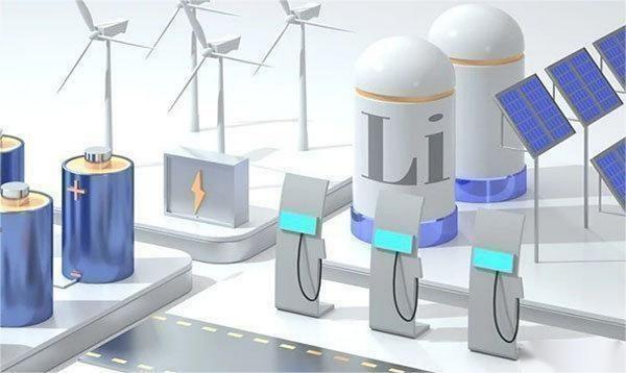
অক্টো. . 12, 2024 23:37 Back to list
Lithium-Ion Battery Solutions for Efficient Solar Energy Storage Systems
Lithium-Ion Batteries for Solar Energy Storage Powering the Future
As the world shifts towards renewable energy sources, solar power has emerged as one of the leading alternatives to fossil fuels. With the growing demand for sustainable energy solutions, the development of efficient energy storage systems has become critical. Lithium-ion (Li-ion) batteries have taken center stage in this transformation, providing a practical means for storing solar energy and enhancing the overall reliability and efficiency of solar power systems.
The Importance of Energy Storage
Solar energy production is inherently intermittent; it is generated only when sunlight is available. As a result, energy storage systems play a vital role in capturing and storing excess energy produced during sunny days for use during cloudy periods or nighttime. Without effective energy storage, the benefits of solar power would be greatly diminished, limiting its practical applications for homeowners, businesses, and utilities alike.
Advantages of Lithium-Ion Batteries
Lithium-ion batteries offer several significant advantages for solar energy storage. First and foremost is their high energy density, which allows them to store a substantial amount of energy in a relatively small space. This makes them ideal for residential applications, where space may be limited. In addition, Li-ion batteries have a longer lifespan compared to traditional lead-acid batteries, providing up to 10 years of reliable performance with minimal maintenance.
Another key advantage of lithium-ion technology is its efficiency. These batteries boast charge and discharge efficiencies of over 90%, meaning that most of the energy stored can be utilized when needed. This efficiency reduces waste and maximizes the amount of solar energy that can be harnessed and used, making solar systems more economically viable.
Integration with Solar Systems
Integrating lithium-ion batteries with solar energy systems is relatively straightforward, making them an attractive option for homeowners and businesses investing in solar technology. These batteries can be paired with solar panels, creating a seamless system where solar energy is generated, stored, and used based on the user's needs. Advanced inverter technology further enhances the performance of these systems, allowing for smart energy management and real-time monitoring.
lithium-ion battery for solar energy storage factory

As energy consumption patterns evolve, the flexibility of lithium-ion batteries allows users to optimize their solar energy usage. For example, homeowners can charge their batteries during the day when energy generation is high and draw from stored energy during peak consumption times to reduce electricity bills.
Environmental Considerations
When discussing energy storage solutions, it is essential to consider their environmental impact. Lithium-ion batteries are generally seen as more environmentally friendly than their predecessors, as they contain no toxic heavy metals. However, the extraction and processing of lithium, cobalt, and nickel — critical components in Li-ion batteries — present significant challenges. To mitigate these issues, many manufacturers are now focusing on sustainable mining practices and researching recycling technologies to recover valuable materials from used batteries.
The development of alternative battery technologies, such as solid-state batteries, is also gaining traction. These innovations seek to improve the safety and efficiency of lithium-ion batteries while minimizing environmental concerns.
The Future of Lithium-Ion Batteries in Solar Energy
The future of lithium-ion batteries in solar energy storage looks promising. With ongoing research and advancements in technology, the performance, safety, and sustainability of these batteries are set to improve steadily. As more people adopt solar energy solutions, the demand for efficient storage systems will only grow, driving further innovation in battery technology.
As we move toward a more sustainable future powered by renewable energy, lithium-ion batteries will play a crucial role in ensuring that solar energy can be harnessed and utilized effectively. By providing an efficient and reliable means of energy storage, these batteries are helping to pave the way for a cleaner, greener world, where solar power can be a cornerstone of our energy infrastructure.
In conclusion, lithium-ion batteries are not just a temporary solution; they represent a critical investment in the future of energy — one that aligns with the global push towards sustainability and environmental responsibility. As technology continues to evolve, their role in solar energy storage will undoubtedly expand, driving the transition to a more sustainable energy landscape.
-
Advanced AI Energy Management with GPT-4 Turbo
NewsAug.02,2025
-
AI-Powered EMS with GPT-4-Turbo | Efficiency Boost
NewsAug.01,2025
-
Optimized Storage System for GPT-4-Turbo | High Performance
NewsJul.31,2025
-
AI Energy Management System w/ GPT-4 Turbo Efficiency
NewsJul.31,2025
-
High-Performance Energy Storage System for Reliable Power Solutions
NewsJul.30,2025
-
Advanced EMS Solutions for Energy Management System & Storage Battery Companies
NewsJul.29,2025























